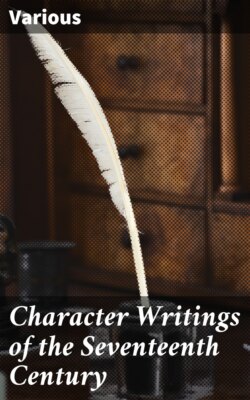Читать книгу Character Writings of the Seventeenth Century - Various - Страница 71
На сайте Литреса книга снята с продажи.
AN INGROSSER OF CORN.
ОглавлениеTable of Contents
There is no vermin in the land like him: he slanders both heaven and earth with pretended dearths when there is no cause of scarcity. He hoarding in a dear year, is like Erysicthon's bowels in Ovid: Quodque urbibus esset, quodque satis poterat populo, non sufficit uni. He prays daily for more inclosures, and knows no reason in his religion why we should call our forefathers' days the time of ignorance, but only because they sold wheat for twelve pence a bushel. He wishes that Dantzig were at the Moluccas, and had rather be certain of some foreign invasion than of the setting up of the steelyard. When his barns and garners are full, if it be a time of dearth, he will buy half a bushel in the market to serve his household, and winnows his corn in the night, lest, as the chaff thrown upon the water showed plenty in Egypt, so his carried by the wind should proclaim his abundance. No painting pleases him so well as Pharaoh's dream of the seven lean kine that ate up the fat ones, that he has in his parlour, which he will describe to you like a motion, and his comment ends with a smothered prayer for a like scarcity. He cannot away with tobacco, for he is persuaded (and not much amiss), that 'tis a sparer of bread-corn, which he could find in his heart to transport without license; but, weighing the penalty, he grows mealy-mouthed, and dares not. Sweet smells he cannot abide; wishes that the pure air were generally corrupted; nay, that the spring had lost her fragrancy for ever, or we our superfluous sense of smelling (as he terms it), that his corn might not be found musty. The poor he accounts the Justices' intelligencers, and cannot abide them. He complains of our negligence of discovering new parts of the world, only to rid them from our climate. His son, by a certain kind of instinct, he binds prentice to a tailor, who, all the term of his indenture, hath a dear year in his belly, and ravens bread exceedingly. When he comes to be a freeman, if it be a dearth, he marries him to a baker's daughter.
